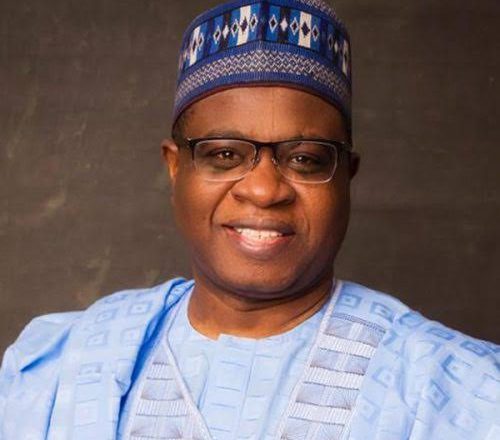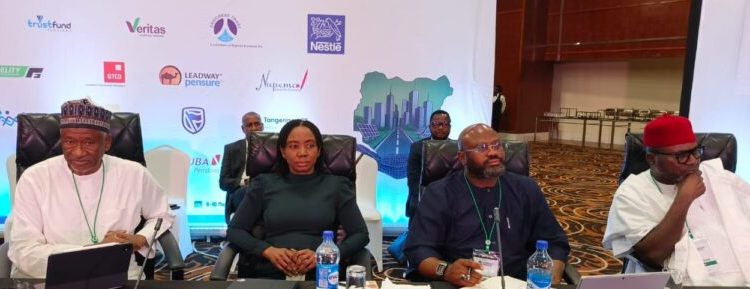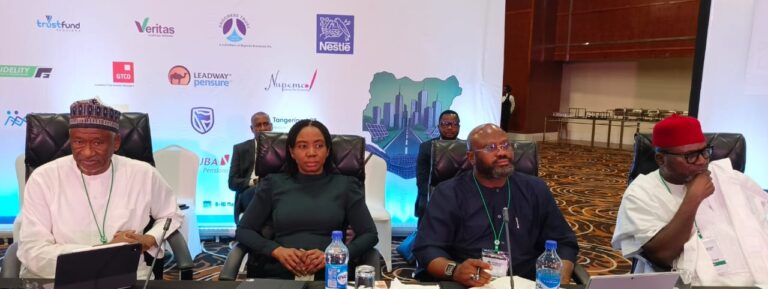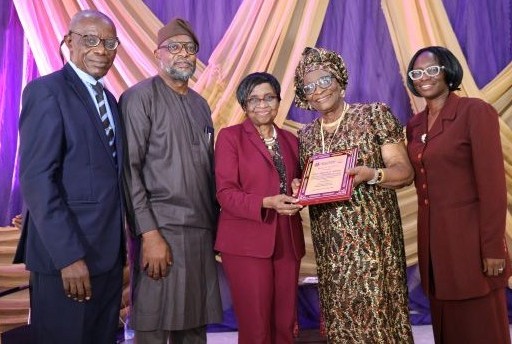NGX Chairman Alhaji Umaru Kwairanga To Head Supernews Conference On June 19
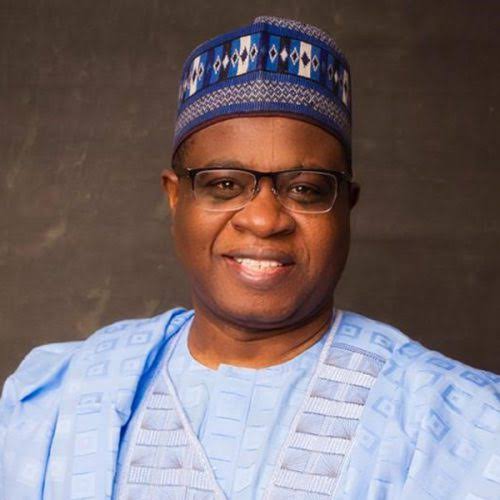
The Chairman, the Nigerian Exchange (NGX) Group is the Chairman of the SUPERNEWS Nigeria Annual Conference scheduled to hold on June 19th 2025 at Oriental Hotel, 3 Lekki Road, Victoria Island, Lagos at 10am.
The conference with theme, Power Of AI: Enhancing Efficiency And Customer Satisfaction For Better Financial Services Experience will have the Managing Director of Cowry Asset Management Limited, Mr Johnson Chukwu as its keynote speaker.
The Commissioner for Insurance, the National Insurance Commission (NAICOM), Mr Olusegun Ayo Omosehin and the Director-General, National Pension Commission (PenCom), Mrs Omolola Oloworaran will be Special guests of honour at the event.
Alhaji Umaru Kwairanga is an experienced investment professional with almost two decades of experience at the highest levels of the Capital Market, Banking and the Real Sector.
He possesses first and post graduate degrees in business administration, corporate governance and finance respectively.
He has also attended courses and training programs in fields relating to finance, investment and money market in reputable institutions including the Harvard Business School, New York Institute of Finance and the Wharton Business School.
Alhaji Kwairanga has professional certifications of the Chartered Institute of Stockbrokers (CIS) and the Certified Pension Institute of Nigeria and he is a member of the Abuja Commodities & Securities Exchange.
Alhaji Kwairanga has been Managing Director of a top notch stock broking firms for over a decade and a director in several blue chip organizations.
He is currently the Chairman of Ashaka Cement PLC, a prominent cement manufacturer in the North East of Nigeria and a quoted company on The Nigerian Exchange.
Alhaji Umaru Kwairanga as the Chairman of Ashaka Cement PLC, greatly improved the performance of the company and ensured that Gombe State Government and other local governments in Nigeria generated significant revenue from Ashaka Cement PLC through prompt payment of taxes and other statutory obligations.
The company has also been diligent in fulfilling its corporate social responsibility and maintaining excellent relations with its various stakeholders.
Alhaji Kwairanga is also the Group Managing Director/Chief Executive Officer of Finmal Finance Services Ltd, Director, Jaiz Bank PLC, Director, Central Securities Clearing System PLC, Chairman, Penman PFA Ltd and President, Certified Pension Institute of Nigeria.
He is a member of the Presidential Advisory Council on Industrial Relation, a Fellow of the Chartered Institute of Stockbrokers and a Fellow of the Certified Pension Institute of Nigeria.
According to the convener, SUPERNEWS Nigeria Publisher, Ngozi Onyeakusi, the choice of Alhaji (Dr) Kwairanga as the Chairman of the conference is as result of his vast knowledge and wealth of experience in the financial services sector.
The conference will equally feature a panel session which will include renowned experts like the Founder/CEO, ZER Consultating Africa, Mrs Adeolu Adewumi-Zer, the Fmr. Managing Director, Hilal Takaful Insurance Limited, Mrs Thaibat Adeniran, the National President, Bank Customers Association of Nigeria (BCAN) Dr Uju Ogubunka and the Head Financial Institutions Ratings, Augusto & Co, Mr Ayokunle Olubunmi.
The epoch making event will be bringing together other regulators, key stakeholders in the financial services, ICT sector, informal sector and small business owners.
Commenting on the theme of the conference, Onyeakusi said Artificial Intelligence (AI) adoption has the capacity to transform the Nigerian financial services sector.
AI technology, according to experts, has gained so much popularity in businesses that analysts put global business value earned through artificial intelligence at $3.9 trillion in 2022, from $1.2 trillion in 2018.
The technology is believed to be capable of facilitating financial inclusion, thus bridging the gap between the masses and financial services, helping to bring these services closer to the people seamlessly.
AI offers an unprecedented opportunity to reach more customers, reduce operational costs, and enhance customer experience.
This confab is a learning opportunity designed to enhance awareness, deepen understanding of participants on the imperative and use of AI in rendering banking, capital market, pension and insurance services, better, cheaper, faster and conveniently.



